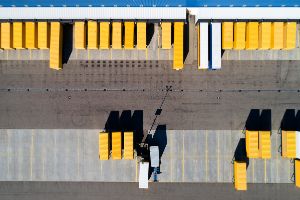Why 2024 is the year cryptoassets will take root in Latin America
This year is already shaping up for a major consolidation of cryptoassets in Latin America, where the financial sector will benefit from welcome diversification. Several countries in the region are already adapting their legislative frameworks to this new reality.
.jpg)
In November 2021, El Salvador took a decisive step towards the digitalization of its economy by becoming the first country in the world to convert a cryptocurrency, Bitcoin, into legal tender. The Salvadoran government invested close to $250 million in the project; $150 million to create a trust to convert Bitcoin into dollars, and $107 million to buy some 2,764 digital assets.
A little more than two years later, the authorities of the Central American nation say the investment is already in the black and would yield, if they chose to sell, a profit of more than $3.5 million.
Lebanese economist Saifedean Ammous, author of the benchmark study The Bitcoin Standard: The Decentralised Alternative to Central Banking, highlights the importance of El Salvador’s success: "It has recovered at a very good pace after almost two years during which politicians, economists and international organizations labeled it a failure after the assets initially began to fall."

New options, more resources
Ammous argues that El Salvador’s move to bitcoin should be seen as "a long-term strategy whose objective, more than the use of the currency that consumers may be making right now, is to contribute to the economic independence of the country and the strength of its treasury, offering a reserve asset that will continue to appreciate over time and that has a large and growing global liquidity pool".
Furthermore, experts such as international investor Samson Sow consider that El Salvador offers a promising example for other Latin American economies, some of which suffer from endemic financial volatility that cryptocurrencies could help to mitigate.
The fundamental thing is to see "Bitcoin as money" and recognize that it can coexist with other means of payment.
Sow points to the growing traction of these assets in countries such as Costa Rica, "where there is already a very large and growing community", as well as the plans for the total or partial adoption of digital currencies that governments such as that of Gustavo Petro in Colombia, or Javier Milei in Argentina, are working on.
For Samson, the fundamental thing is to see "Bitcoin as money" and recognize that it can coexist with other means of payment (starting with the most prevalent in Latin America, cash), thus boosting the room for maneuver of companies, institutions and individuals.

From Brazil to Uruguay, Chile or Peru
In the opinion of Denise Cinelli works at CryptoMarket Brasil, the medium-term future of cryptoassets in Latin America "is being aired in the region's main economy, Brazil". The world's eleventh-largest economic power, a huge country of 214 million people with a GDP of more than €1.8 trillion, is undertaking a profound regulatory framework change, driven by its Central Bank, which is expected to be ready by mid-2024.
The legislative reform aims to provide "clarity and full guarantees" in a nation that has already provided itself, through the creation of the DREX, with a digital equivalent of its own currency, the real, which allows "international negotiations without exchange rate variations". This is very important, "given the profound effect that economic instability is having on world trade". In parallel, the number of Brazilians who are investing in this asset continues to increase very significantly, starting with benchmarks like Bitcoin and Ethereum.
Cinelli explains that sectors outside the financial sector, such as real estate or e-commerce, already support payments in cryptocurrencies. The Chainanalysis 2023 Geography of Cryptocurrencies report puts Brazil in ninth place among the most digitized and virtualized economies in the world, noting that that assets such as Bitcoin have already established themselves as safe haven securities investors are turning to so as to protect their investment capital.
Significant legislative changes are underway in Uruguay, which already allows financial institutions to carry out their operations with digital assets. In Chile, new regulations on their use will come into force in February under the auspices of the Financial Market Commission; while in Peru, where the widespread use of digitized assets still contrasts with the lack of a regulatory framework on a par with the pioneering economies, changes are expected in the very short term.
Significant legislative changes are underway in Uruguay, which already allows financial institutions to carry out their operations with digital assets.
This institutional consolidation of cryptoassets throughout Latin America makes it more important than ever to safeguard them properly. Prosegur Crypto, Prosegur Cash’s institutional digital asset custody service, has just announced the creation of a crypto bunker in Brazil, which follows the launch of the company’s first, in Madrid in 2021.
Prosegur Crypto’s Brazilian initiative is part of its international expansion strategy. "The crypto bunker will become an important crypto-asset custody center not only for Brazil, but for all of Latin America," explains José Ángel Fernández, Executive Chairman of Prosegur Crypto and corporate director of innovation at Prosegur Cash.
Fernández concludes: "As the institutional cryptoasset arena in the region continues enjoying rapid growth, driven by the implementation of regulatory frameworks, the crypto bunker offers a perfect combination of physical security and digital protection for financial institutions wishing to provide cryptoasset custody services to their clients."

.jpg)

.jpg)
.webp)
